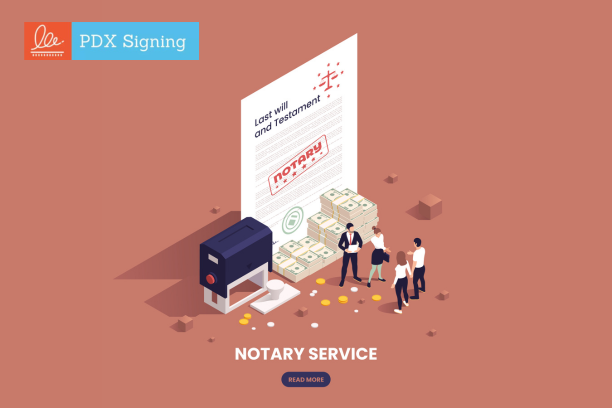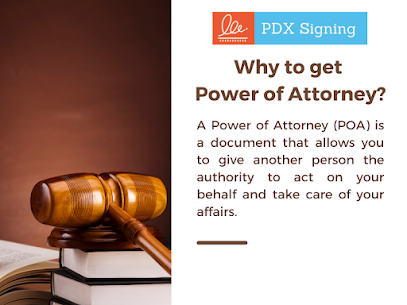
Estate planning is a crucial process that ensures the protection and distribution of your assets and properties after your passing. It involves creating various legal documents that outline your wishes and instructions regarding your estate. However, the effectiveness of these documents depends on their validity and authenticity. This is where notary services play a vital role in safeguarding your estate planning.
Understanding the Importance of Estate Documents
Estate documents are legal instruments that provide clear instructions on how your assets should be managed and distributed when you are no longer able to do so. These documents include wills & witnesses, trusts, and powers of attorney. They are designed to protect your family and loved ones, ensuring that your wishes are respected and executed.
Without proper estate documents, your assets may be subject to probate, a lengthy and expensive legal process that can cause unnecessary stress and conflicts among your beneficiaries. By having well-crafted estate documents, you can avoid probate and ensure that your assets are distributed according to your wishes.
The Role of a Notary in Estate Planning
A notary is a public officer authorized by the state to verify and authenticate legal documents. When it comes to estate planning, a estate planning notary plays a crucial role in ensuring the validity and authenticity of your estate documents. They act as an impartial witness, verifying your identity and confirming that you signed the documents willingly and without any pressure.
Notaries are responsible for administering oaths, affirmations, and acknowledgments, which are essential to validate the legal documents. By notarizing your estate documents, you provide an extra layer of security and credibility, reducing the risk of disputes and challenges to their validity.
Benefits of Using a Notary for Estate Documents
There are several benefits to using a notary for your estate documents. Firstly, notarization adds an official stamp and signature to your documents, making them legally binding and enforceable. This can help prevent any potential challenges to the validity of your documents.
Secondly, notarized estate documents provide a clear record of your intentions and wishes. They establish a written trail that can be easily followed and understood by your loved ones and legal representatives, minimizing the chance of misinterpretation or confusion.
Lastly, notarized estate documents provide peace of mind. Knowing that your documents have been properly executed and notarized gives you confidence that your wishes will be respected and your assets will be distributed as intended.
Common Estate Planning Documents that Require Notarization
Several estate planning documents require notarization to ensure their validity. These include wills, trusts, and powers of attorney. A will, which outlines how your assets should be distributed after your passing, must be notarized to be legally binding.
Trusts, which allow you to transfer your assets to a trustee for the benefit of your beneficiaries, also require notarization to be valid. Notarization ensures that the terms and conditions of the trust are properly executed.
Powers of attorney, which grant someone the authority to make legal and financial decisions on your behalf, must be notarized to be legally effective. Notarization adds a layer of authenticity and credibility to the document, ensuring that your designated representative has the legal authority to act on your behalf.
Exploring the Power of Attorney in Oregon and Its Notarization Requirements
In the state of Oregon, a power of attorney is a critical estate planning document that allows you to designate someone to make decisions on your behalf if you become incapacitated. To ensure the validity of a power of attorney in Oregon, it must be notarized.
Oregon has specific requirements for notarizing a power of attorney. The document must be signed in the presence of a notary, who will verify the identity of the person signing and ensure that they understand the contents of the document. The notary will then affix their official seal and signature, certifying the authenticity of the document.
Notarizing a power of attorney in Oregon adds an extra layer of protection, ensuring that the document is legally valid and enforceable. It provides peace of mind knowing that your designated representative will have the authority to make important decisions on your behalf when you are unable to do so.
The Role of Witnesses in Estate Planning and Notary Services
In addition to notarization, witnesses play a crucial role in estate planning. Witnesses provide an additional layer of credibility and validity to your estate documents, ensuring that they are executed properly and without any undue influence.
Wills, trusts, and powers of attorney often require the presence of witnesses during the signing process. Witnesses serve as impartial individuals who can attest to the authenticity of your signature and verify that you signed the document willingly and without any coercion.
In some jurisdictions, including Oregon, witnesses may also be required to sign the document in the presence of a notary. This further strengthens the validity of the document and provides additional evidence of its authenticity.
Finding a Reliable Notary Service for Estate Planning Needs
When it comes to estate planning, it is essential to find a reliable notary service to ensure the validity and authenticity of your documents. Look for a reputable notary service that specializes in estate planning and has a thorough understanding of the legal requirements in your jurisdiction.
A reliable notary service should have experienced notaries who are knowledgeable about estate planning laws and regulations. They should be able to guide you through the notarization process, answer any questions you may have, and ensure that your estate documents are properly executed.
Before choosing a notary service, it is advisable to do some research and read reviews from past clients. Look for testimonials that highlight the professionalism, reliability, and attention to detail of the notary service. This will give you confidence that your estate planning needs will be met with the utmost care and precision.
Conclusion: Safeguarding Your Estate with Notary ServicesEstate planning is a crucial process that requires careful consideration and attention to detail. By utilizing notary services, you can safeguard your estate planning and ensure that your wishes are respected and executed.
Notarization adds credibility and validity to your estate documents, making them legally binding and enforceable. It provides peace of mind knowing that your assets will be distributed according to your wishes and that your designated representatives will have the legal authority to act on your behalf.
We encourage you to book an appointment today by calling +1 971 708 3000 or visit our website to learn more about our services. Our experienced notaries are ready to assist you with all your estate planning needs, ensuring that your documents are properly executed and your estate is safeguarded.


Make sure that your documents will be upheld in court when you prepare or update crucial estate paperwork. Having them notarized is one way to do this. While certain estate documents need to be notarized when they are signed, others do not. We’re going to go through what a notary public actually does and which estate documents you should have notarized.
The Function of a Notary Public
An official who serves the community is a notary public. According to the legislation, notaries are only allowed to undertake a few extremely specified tasks, such as administering oaths, witnessing papers, and other administrative duties.
There is an application and approval process for every notary public. To become a notary public in Tigard, you must meet the following requirements: 1) be at least 18 years old; 2) be a US citizen or legal resident; 3) legally reside in the county where you are applying; 4) have a working phone number; and 5) be able to read and write English.
After completing the application procedure successfully, a notary public has the power to:
- The taking of vows and affirmations
- Create certified copies of any original paperwork that isn’t public information.
- Please accept my thanks.
- Take affirmative or oath-based verifications.
- Affidavits of witnesses made under oath
- Signatures on written documents should be witnessed or attested.
To put it another way, they have the power to authenticate signers, watch over the process of signing a document, administer oaths, swear that the information included in a document is accurate, and permit the duplication of original papers.
Requirements for notaries
Verifying the signer’s identity and ensuring that the documents are complete are required for a notary to carry out their notarial function. The notary will ask the signer to provide identifying documentation (such as a driver’s licence or passport) in order to accomplish this. The signer(s) must complete the form in person, in front of the notary, as well. The notary will typically ask the signer to fill out the paperwork in blue ink, which makes it easier to tell the difference between an original and a photocopy. The notary will sign and stamp the paperwork after everything is done. Either an ink stamp or a perforation stamp may be used for the stamps, which are issued as part of the notary application process.
If a notary public believes that the transaction is unlawful or dishonest, they will not administer an oath or notarize a document. Additionally, they will ensure that the signer is not being pressured and that they are aware of the implications of the transaction.
Estate Planning Documents Notarized
A document that has been notarized has been correctly executed and should hold up in court. Notarization is not required for every estate document, but it might be a wise, proactive move if you’re worried that other parties won’t carry out your desires. If you need any guidance on notarizing wills or estate planning, you need to contact any nearby notary public. The following types of papers must be notarized:
- Custody and Guardianship Agreements
- Executorships
- Power of Attorney
- Probate Court Petitions
- Trusts
- Wills
Do you still have questions? Get in touch with Mr. Han Poonawala and Pdx signing
It takes time and effort to complete your estate documents. You want to ensure that your paperwork will hold up in court after all that labor. A notary public is crucial to that procedure. Please contact us at +971 708 3000 or via our online contact page if you have any questions about notarizing your estate documents or if you’d like to arrange an estate planning session.

A power of attorney (POA) can be made more enforceable by being properly notarized.
Read the following as our mobile notary Oregon describes what a power of attorney is and how to notarize one:
What does power of attorney mean?
Simply put, it’s a legal agreement that gives one person authority over another person’s real estate transactions, legal decisions, assets, and medical decisions in the event that they are unavailable or incapable of doing so.
Two persons are necessary for a power of attorney to continue to be enforceable: the principle, who signs the document, and the agent, also known as the attorney-in-fact, who is the power to act on the principal’s behalf is granted.
In the majority of states, a power of attorney gives an agent the authority to assist the principal with financial decisions (such as managing real estate and bank accounts) and healthcare decisions (such as end-of-life medical treatment).
A power of attorney can either go into force immediately or at a future date (such as when the principal becomes physically or mentally incapacitated). The power of attorney is automatically removed upon the death of the principal. An agent could be a lawyer, an acquaintance, or a relative. A person cannot act as an agent if they have an unresolved bankruptcy on their record or have filed for bankruptcy. Additionally, the agent cannot work for, own, or operate a nursing home or extended-care facility where the principle is a resident.
Making a power of attorney notarized
The state determines how to notarize a power of attorney. While some jurisdictions merely require the principal’s signature to be notarized, others also call for either a witness’s signature or a principal’s signature (or both) to be notarized. Therefore, get knowledgeable about the regulations governing the notarization of documents in your state.
It is generally forbidden for a notary to notarize a document if they are the principal or the attorney-in-fact. Notarizing a document in this situation would be a clear conflict of interest, which is something that most states expressly forbid.
Creating a power of attorney
Most states mandate that a professional attorney with an active license create a power of attorney in order to protect all parties involved. The drafting attorney shall ensure that the contents of this document are true and correct to the best of the drafting attorney’s knowledge.
The notary’s function in the procedure is in contrast to this. When a document is notarized, the notary public confirms the signature of the named individual on the document in their presence, rather than attesting to the contents of the document.



In general, the person who grants a power of attorney, known as the “principal,” has the ability to revoke or terminate the power of attorney at any time as long as they are still mentally competent to do so. This can be done by providing written notice to the person who was granted the power of attorney, known as the “agent” or “attorney-in-fact,” and to any relevant third parties who may have relied on the power of attorney.
In some cases, a court may also have the authority to override a power of attorney. For example, if the agent is acting in a manner that is contrary to the principal’s wishes or in a way that is harmful to the principal, a court may step in and revoke the power of attorney.
It is also worth noting that certain types of powers of attorney, such as a healthcare power of attorney, may have specific rules and regulations regarding how they can be overridden or terminated. It is important to consult with an attorney or other legal professional to fully understand the rules and regulations that apply to your specific situation.
Does a power of attorney need to be notarized?
Whether or not a power of attorney needs to be notarized depends on the laws of the jurisdiction where the power of attorney is being executed.
In many jurisdictions, a power of attorney must be notarized in order to be valid. This involves signing the document in the presence of a notary public, who then verifies the identity of the person signing the document and witnesses their signature. The notary will also affix their official seal to the document.

Potential customers frequently ask me and the other attorneys in the office if they should design their estate planning forms themselves or use an online drafting service. The following three arguments favor using an estate planning attorney over an online resource.
Assumption of Value: Many customers are surprised by the first reason- with an online drafting service, you don’t get a lot for your money. Sadly, internet drafting providers effectively position themselves as a complement to or replacement for an estate planning attorney. But, as any online drafting service’s terms of service will make clear, they are not a replacement for counsel. The terms of service for the most popular online drafting service, for instance, say that the site does not offer advice, opinions, or suggestions, or apply the law to the specific facts of your situation, and that it is not a replacement for counsel. In other words, the document you obtain from an online drafting service is not for you because it might or might not be in accordance with relevant state and federal law and might or might not be appropriate for your situation. By doing this, you risk creating issues for yourself, your family, and your estate.
Avoiding mistakes: An Power of attorney Hillsboro can help avoid common mistakes that people make when writing their wills. This can help ensure that your assets are distributed in the way you would like and can help to avoid costly and time-consuming disputes between family members.
Time and Money: How many clients’ remark, “I have a simple life and need a basic plan,” I’ve lost count. Later, these same clients frequently felt that we addressed topics and results that they never would have considered on their own. Estate planning is challenging. Every family and individual has distinct circumstances that are particular to them, and the law governing the subject is complicated with consequences on both the state and federal levels. Estate planners are knowledgeable about the questions to ask to effectively uncover problems that could affect your strategy. Also, keep in mind that the way your estate plan is put up could affect the taxes you and your estate pay, the basis for which your beneficiaries receive your assets, and the speed at which assets move to beneficiaries.
